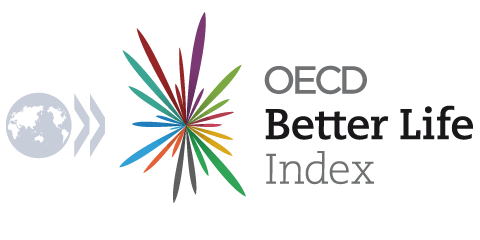Happiness pays
By guest authors: Jan-Emmanuel De Neve and Andrew Oswald.
Some say money buys you happiness, but our research shows that it is the other way round – being happy when you are young helps you earn more. Why should this be? Well, it may simply be that happier people are more productive and get promoted faster.

In our study, we looked at the happiness of thousands of randomly sampled young people and showed that, even allowing for other influences, their happiness tells you a lot about who is going to have higher earnings in life. We present the first in-depth investigation of whether today’s happiness is a predictor of income a decade later.
Following a large US representative sample of individuals (called the Add Health data), we discovered that adolescents and young adults in America who report higher “positive affect”, which is a technical measure of happiness, or higher “life satisfaction” grow up to earn significantly higher levels of income later in life. The effect is big. For example, a one-point increase in life satisfaction (on a scale of 5) at the age of 22 is associated with almost USD 2 000 higher earnings per annum at the age of 29. This is on top of other influences on incomes.
We also used the availability of siblings in the data to show that happier siblings tend to grow up to earn higher levels of income. These results are robust to the inclusion of important other factors such as education, physical health, genetic variation, IQ, self-esteem, and current happiness. Part of this is simply because people with sunny dispositions are more likely to get a degree, get hired and get promoted.
Our study showed that the effect of individual happiness on income is greater than the well-known influence of income on happiness. We also looked at how happiness may influence income. Mediation tests reveal a direct effect as well as indirect effects that carry the influence from happiness to income. Significant mediating pathways include obtaining a college degree and a job, higher degrees of optimism and extraversion, and less neuroticism.
These findings have important implications for academics, policy-makers, and the general public. For academics, these results reveal the strong possibility for reverse causality between income and happiness—a relationship that most have assumed unidirectional and causal. For policy-makers, it highlights the importance of promoting general well-being (GWB), not just because happiness is what the general population aspires to (instead of GDP) but also for its productive effects—i.e. it may pay off to focus policy on maximising happiness and minimising suffering. For the general public, and parents in particular, it means that the emotional well-being of children and adolescents is key to their future success and this research provides yet another reason for the need to create an emotionally healthy home environment.
So instead of stressing out about money, maybe you should concentrate first on being happy and the rest will follow.
These findings were reported in De Neve, J-E. & A. J. Oswald (2012) "Estimating the Influence of Life Satisfaction and Positive Affect on Later Income Using Sibling Fixed-Effects" Proceedings of the National Academy of Sciences (PNAS). Vol.109, No.49, pp. 19953-19958.
www.pnas.org/content/109/49/19953.short

Comentarios